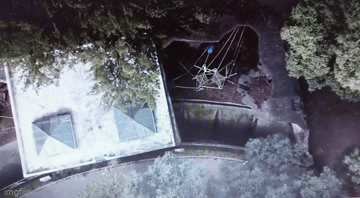Non-human rights: Pandora’s Box
In 2014 the Officials and Lawyers for Animal Rights Association (AFADA), represented by the constitutionalist lawyer Andrés Gil Domínguez, started a legal recourse to stop considering Sandra the orangutan, born in captivity and abandoned by her mother, as an “object”, the traditional way in which non domestic animals are codified in the Argentine Civil and Commercial Code. This culminated in a habeas corpus (fundamental legal institution for human rights that guarantees avoiding arbitrary detentions and preserves personal integrity) writ from AFADA in the penal jurisdiction. During her life Sandra went through transportations from one German zoo to another, before eventually being moved to Argentina, where she lived in the Palermo Zoo in deplorable conditions for years, suffering from depression due to lack of stimulus and the necessary habitat conditions to ensure her distention, exercise and basic mobility required for her physical and mental health.
In March 2015, after the habeas corpus writ, the matter reached the Administrative, Contentious and Tributary Court N° 4 of the City of Buenos Aires, directed by Justice Elena Liberatori. After a thorough research process she reached the ruling that Sandra is, effectively, a rights subject as a non-human person. This was the first ruling of its kind worldwide in history and the appeal that was put forward almost immediately after this was left without effect. A Habeas Corpus resource was disposed to determine the conditions of her confinement, which started a negligent and troubled transfer process undertaken by the Government of the City of Buenos Aires, finalizing in Sandra’s move to the Center for Great Apes in Florida, United States, in 2019.
During the judicial process and before Sandra was moved to her final location, m7red collaborated with various international actors to research the limits of the human and the non-human, animal rights in the anthropocene, ecocide and the history of human rights. Of these collaborations was born a book proposal entitled A Natural History of Human Rights, the first chapter of which was named Ape Law and was presented as an exhibit in the Third Istanbul Design Biennial. Eyal Weizman, founder of Forensic Architecture, furthermore published the results of this research in e-flux Architecture as an article named “Are They Human?”. Near the date of Sandra’s transfer to the US, further follow-ups were performed on her health and habitat with the use of drones, footage used to create the video “Sandra: The Pandora’s Box”.
Credits:
- Collaborators in Ape Law, exhibited in the Third Istanbul Design Biennial, along with Forensic Architecture, FIBGAR, Baltasar Garzón and Irendra Radjawali. Part of collective research A Natural History of Human Rights, by Eyal Weizman (Forensis). Galata Primary Greek School, Istanbul, Turkey, October 22nd to November 20th, 2016.
- Collaborators with Eyal Wiezman for his article “Are They Human?”, published in e-flux Architecture, October 2016.
- Seminar: “Sandra, a natural history of human rights”, in collaboration with Forensic Architecture, FIBGAR, Baltasar Garzón and Irendra Radjawali, La Sede Cultural Center, Buenos Aires, Argentina, June 2017.
- Interview with Pío Torroja: “What is a non-human right?”, SOY supplement, Página/12 newspaper, Buenos Aires, Argentina, July 14th 2017.
- Video: “Sandra: The Pandora’s Box”. Buenos Aires, Argentina, 2019.

